Key findings
Traditional health concerns for children have dropped to the bottom of the concern list for parents with modifiable lifestyle factors including poor diet, lack of activity and screen time proving to be what worries parents most.
More than 90 per cent of parents reported that excessive screen time was a problem and ranked as the number one health concern across the board according to the latest results from The Royal Children’s Hospital National Child Health Poll, released today.
The latest poll has revealed the top 10 child health problems as identified by Australian parents, from a survey conducted in February 2021.
The poll of 1980 parents of children aged one month to less than 18 years found:
- The number one health concern for parents in 2021 is excessive screen time with more than 90% of parents reporting it was a big problem or somewhat of a problem in the community.
- Cyberbullying and bullying (53%) was the second top health concern parents have for all children, followed by internet safety (52%) with parents reporting these were big problems.
- Lifestyle issues such as unhealthy diets (41%) and lack of physical activity (38%) are listed in the top health problems identified by parents.
- Mental health was a notable concern, with approximately 38% identifying depression or suicide as big problem for children in the community, with anxiety and depression also listed as common problems
- One in 10 parents report stress and sleep are big problems for their own children.
Dr Margie Danchin, Paediatrician and Acting Poll Director, said the latest results are similar to those from a survey conducted five years ago, and show that too much screen time is a persistent problem.
“Our lives are saturated by digital screens, and it can be difficult to reduce screen time for children when so much of their education and recreation activities are on these devices, particularly in the year 2020 with home learning the norm. However, if we continue to encourage physical activity and time outdoors, we can reduce screen time and address some of the other concerns of parents, such as lack of physical activity and obesity.”
While parents’ concern around excessive screen time was at similar levels five years ago, internet safety was raised as a big problem by over 50 per cent of parents in this latest poll, reflecting increasing awareness around kids’ safety online.
Along with online behaviour, many of the top 10 health problems were related to lifestyle factors such as sedentary behaviours that can contribute to ill health. Parents recognised the links between these, with parents who reported that lack of physical activity was a big problem were more than six times more likely to identify unhealthy diets as a big problem as well.
The poll also revealed that parents were less likely to report the top health issues as a problem for their own children compared to children in the community.
Over one in three parents noted lack of physical activity and exercise as a big problem for all children, however, only one in eight noted it as a big problem for their own children. Similarly, 41 per cent of parents thought unhealthy diets were a big problem for all children, with only nine per cent of parents seeing it as a big problem for their own children.
“This latest RCH National Child Health Poll serves as a reminder that we need appropriate supports and programs for parents to ensure children are staying safe, both within the community and online, and keeping active and healthy. We also need to prioritise mental health, build positive relationships and make sure we are checking in with our kids regularly to see how they’re going.”
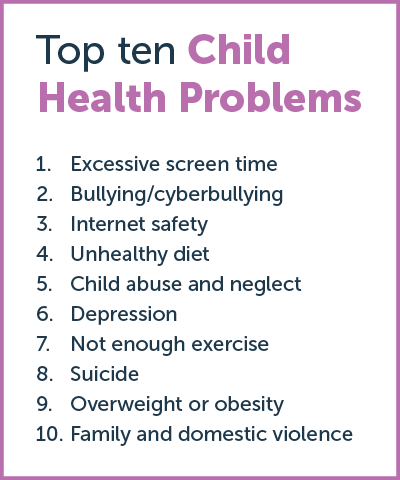
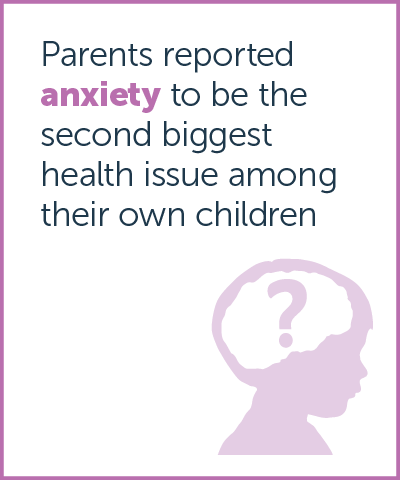
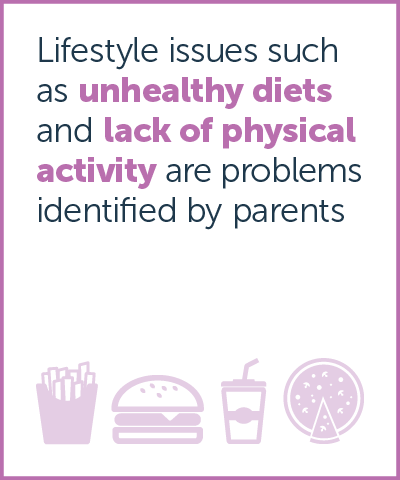
Poll report
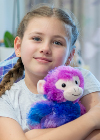
Top 10 child health problems: What Australian parents think
Download report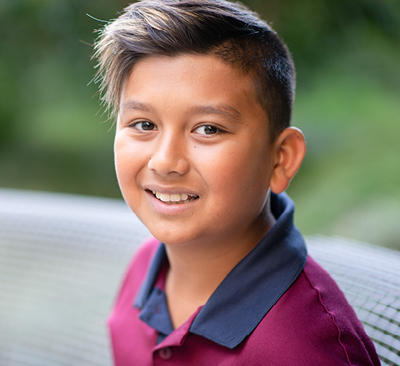
Poll questions

Top 10 child health problems: What Australian parents think
Download questions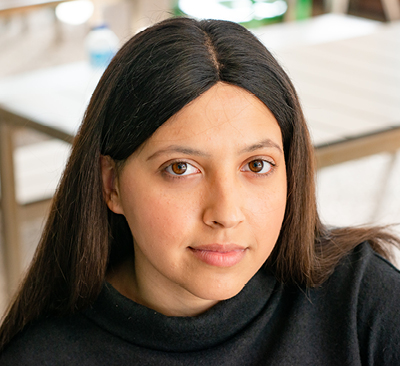
In the news

Information for parents
Tips for parents
- Encouraging time outdoors, physical activity and participation in sport, will help to get kids moving, enjoying time with friends and family and away from screens.
- Walking to the shops or school, instead of driving, can be simple ways to help your child be more active each day.
- Parents can take a proactive approach and model health eating habits for their children. These habits develop in the early years and can stay with children for life.
- Developing strong and positive relationships with our children can help to build resilience and foster open conversations. Remember to check in regularly with your child to see how they are doing.
Additional resources
Physical activity, nutrition and sleep
- Health Direct – Healthy and active children
- Raising Children – Physical activity for children
- Vic Health – Encouraging physical activity
- The Department of Health – Physical activity guidelines
- Eat for Health – Healthy eating for children
- Health Direct – Healthy eating for children
- RCH Kids Health Info – Bedtime problems
Sedentary behaviour and screen time
- The Department of Health – Sedentary behaviour and screen time
- Healthy WA – Screen time recommendations
- Raising Children – Screen time: checklist for healthy use
Online safety
- eSafety Commissioner
- Australian Parents Council – Digital parenting
Mental Health
- Beyond Blue – Healthy families
- Headspace – For young people
- Mental Health Info – National Alliance on Mental Illness
- RCH Kids Health Info – Mental health in infants and children
- Raising Children – Good mental health for children
- RCH Kids Health Info – Mental health in adolescents
- Raising Children – Mental health and physical health in teens



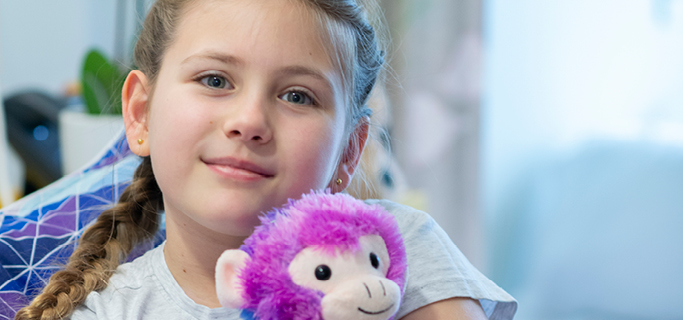
[…] a 2021 poll from the Royal Children’s Hospital Melbourne, excessive screen time was the top concern for […]
[…] and father, researchers and policymakers scrambling to catch up. And it has inevitably led to concerns about screen use, in addition to guidelines about limiting their […]
[…] para atrapar a los padres, investigadores y formuladores de políticas. Y esencialmente ha liderado Preocupación por el uso de la pantallaasí como Pautas Sobre limitar su […]
[…] dan performulator kebijakan berjuang untuk mengejar ketinggalan. Dan pasti telah menyebabkan Kekhawatiran tentang penggunaan layarmaupun Pedoman saat membatasi […]
[…] has left parents, researchers and policymakers scrambling to catch up. And it has inevitably led to concerns about screen use, as well as guidelines about limiting their […]
[…] has left parents, researchers and policymakers scrambling to catch up. And it has inevitably led to concerns about screen use, as well as guidelines about limiting their […]
[…] many parents worry about their children getting “too much” screen time, but research increasingly shows that the type of screen time often matters more than the amount. […]
[…] is one of the top concerns Australian parents have about their children’s […]
[…] is one of the top concerns Australian parents have about their children’s […]
[…] remember, you are certainly not the only family telling your kids “this is the very last episode”. If today has been a struggle, take tomorrow […]
[…] remember, you are certainly not the only family telling your kids “this is the very last episode”. If today has been a struggle, take tomorrow […]
[…] use and internet safety are two of the top concerns Australian parents have about their kids’ health and wellbeing – even ranking ahead of diet, […]
[…] use and internet safety are two of the top concerns Australian parents have about their kids’ health and wellbeing – even ranking ahead of diet, […]
[…] parents rank screen time as the number one health issue facing their children. Given that screen time is an inescapable part of most children’s lives, it […]
[…] time is one of the top worries for Australian parents. In a national February 2021 poll by the Royal Children’s Hospital Melbourne, parents rated it as the number-one health issue […]
[…] time is one of the top worries for Australian parents. In a national February 2021 poll by the Royal Children’s Hospital Melbourne, parents rated it as the number-one health issue […]
[…] time is one of the top worries for Australian parents. In a national February 2021 poll by the Royal Children’s Hospital Melbourne, parents rated it as the number-one health issue […]
[…] use” and “not enough exercise” are (separately) among the top health concerns Australian parents have about their children. Science has shown us that children under the age of […]
[…] use” and “not enough exercise” are (separately) among the top health concerns Australian parents have about their […]
[…] use” and “not enough exercise” are (separately) among the top health concerns Australian parents have about their […]
[…] use” and “not enough exercise” are (separately) among the top health concerns Australian parents have about their […]
[…] use” and “not enough exercise” are (separately) among the top health concerns Australian parents have about their […]
[…] parent and it’s likely they’ll tell you they’re worried about their kids’ screen time. A 2021 poll found it was Australian parents’ number one health concern for their kids – ahead of […]
[…] Royal Children’s Hospital March 2021 child health poll found too much screen time was parents’ number-one health concern about their kids, with […]
[…] and it’s likely they’ll tell you they’re worried about their kids’ screen time. A 2021 poll found it was Australian parents’ number one health concern for their kids – ahead of […]
[…] and it’s likely they’ll tell you they’re worried about their kids’ screen time. A 2021 poll found it was Australian parents’ number one health concern for their kids – ahead of […]
[…] and it’s likely they’ll tell you they’re worried about their kids’ screen time. A 2021 poll found it was Australian parents’ number one health concern for their kids – ahead of […]
[…] and it’s likely they’ll tell you they’re worried about their kids’ screen time. A 2021 poll found it was Australian parents’ number one health concern for their kids – ahead of […]
[…] a recent Royal Children’s Hospital study, parents reported anxiety to be the second biggest health issue among their children. Talking […]